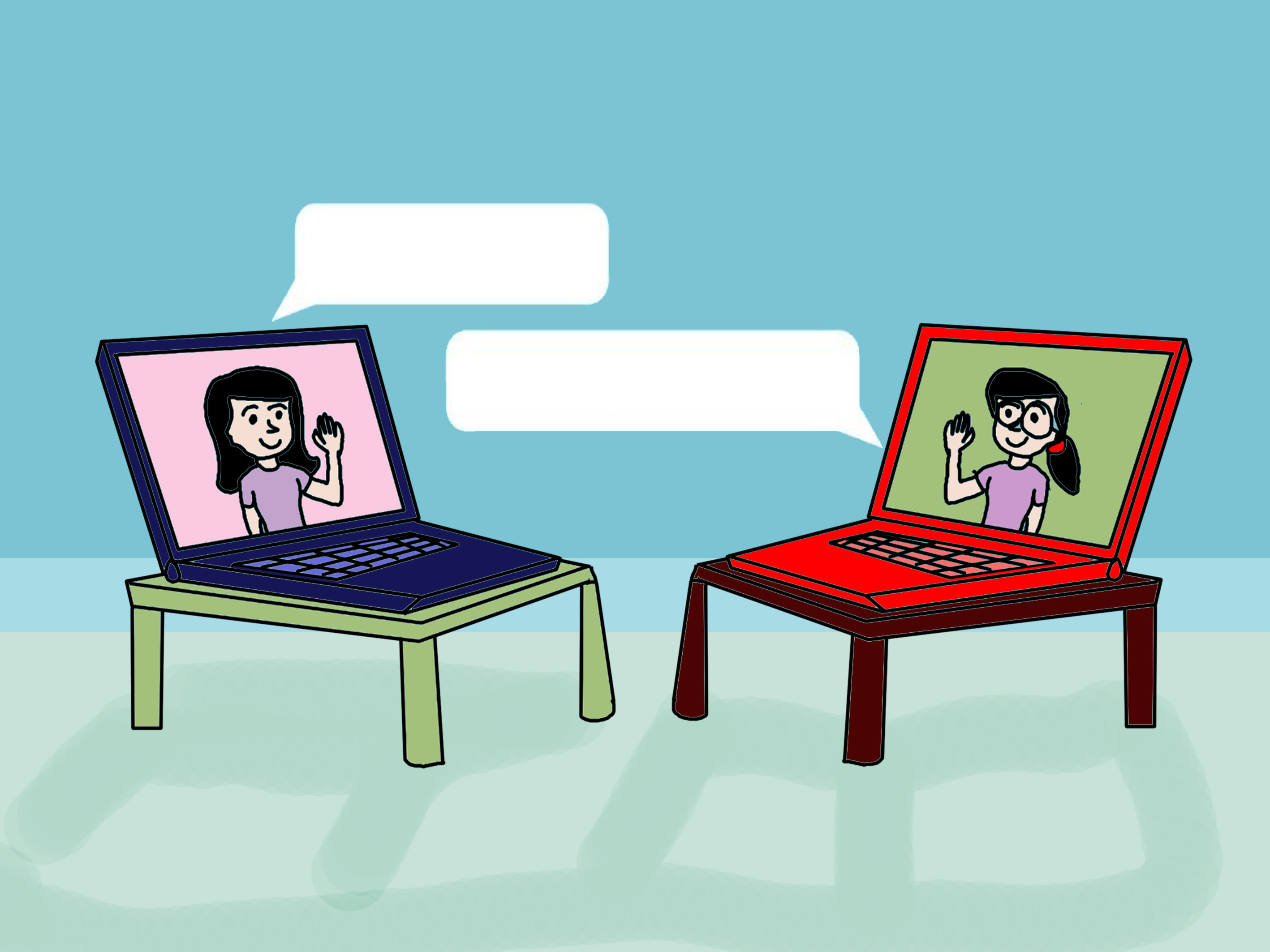In the internet age, online friendships are generally considered the norm. People like myself who have turned to the internet to gain perspective and new knowledge now find themselves gaining new friendships as well. I’ve been on the internet since I was 12 years old, when my father handed me my first laptop.
Now, at 20, I want to share a few of the bad and good consequences I’ve noticed as a self-defined internet kid who has most of her friendships online.
The Negatives
1. Lack of Physical Connection
One obvious drawback is how people miss out on connecting on a physical level. For me, most of my connections started on sites like Meez, IMVU, Experience Project and a few others. People generally start off by messaging each other in a public or private chat.
Although my conversations were rich, the physical context was missing, despite our using acts like Skype. I could see them, but I couldn’t really see them in real life, nor could they see me. We really saw the secondhand version of ourselves through our articulated messages. With online friendships, it’s easy to unintentionally present ourselves as “better” than we are. The way we move and walk, the way we laugh, the way we look and any little quirk we have is missing from our conversations.
2. People Ghost You
From time to time, my online friends will suddenly disappear. As easy as it is to make friends on the web, it’s also easy for you to leave them, and for them to leave you. Although physical contact isn’t established, people can separate their online messages from actual, real people. It’s easier to disregard the self-esteem of people who are semi-anonymous, by leaving them suddenly, than it would be in person.
This is a major point of frustration for me. Many people seek companionship online, and once they’ve achieved it, they feel free to leave, thus abandoning their virtual relationships. The same idea can occur in real life, but, in the case of online friendships, disappearing into the ocean of strangers is as quick and painless as never responding again, leaving old friends feeling hurt and confused.
3. Internet Addiction
One of the most prominent negative consequences I found making friends online is how easily an internet connection and turn into an internet addiction. Online, we can have constant connections to people who live miles away from us. We can talk to people from France, Texas, Australia and anywhere else in between. This enormous network of resources is often intimidating, and sometimes addictive.
Once we do meet someone, we can open up and share our personal thoughts and feelings. And when we’re done with that person, we can leave them too. We can then repeat the cycle, endlessly searching for “perfect friends.” Online friendships that are highly intense give us a feeling of euphoria, and when paired with a source of instant gratification, it soon becomes internet addiction.
In addition, internet addiction can lead to the inability to make friends in real life. Once someone becomes used to online friendships and the liberties they allow, they can become very socially awkward and unable to make friends offline.
The Positives
1. Vulnerability
On the other hand, the internet gives us a chance to put aside how we look, how we sound and the insecurities we might worry about when conversing in person. We can meet a wide range of great people.
Personally, I’ve made connections with people my age from Australia and Ireland. I’ve met established professors from the U.K. I’ve made friends in my own backyard here in the U.S. Despite trolls and other malicious user, people onliny are generally open and helpful. Many netizens are seeking companionship from one another, searching for energizing conversation about things they actually care about.
For me, the access to online friendships helped me through my teenage years when I felt like no one truly understood me. Throughout the years, I’ve been a part of meaningful discussions, all of which have matured my reading, music and personal interests over time. Being able to actively share my views with a larger and more receptive audience taught me how to articulate myself more. I was able to get out of my head, overcome vulnerability and make deep connections with other thinkers.
2. Access to Thought Diversity
Like I said, the internet gave me access to the rest of the world. I’ve had many conversations about politics, philosophical ideals like freedom and anarchy, the definition of love and the list goes on. With each of these topics, I’ve toyed with different perspectives. Each person has their own view of life, and I’ve found that each person is eager to share their worldview with me. I think we all genuinely want to be understood, and the internet gives us a platform to truly be ourselves.
We don’t have to conform to the mold around us, as the real world often forces us to do. Instead, we can hop from group to group until we find a circle of like-minded thinkers. The only problem with us “thinkers” occurs in the case of radicalism, but this often turns out to be a great philosophical situation.
3. Fighting Loneliness
At last, the most simple benefit of online friendships is curbing loneliness. Every creature feels loneliness. Loneliness might come from family, school or everything in between. I know for me, I felt most alone philosophically, as if my worldview was invalid and worthless. I always liked experimenting with new ways of thinking and found it hard to relate to others in real life. That, along with being an introvert, made forming real-life connections difficult for me.
Ever since my father gave me my laptop, used with a few dents in its cover, I’ve been on this wild adventure of discovering who I am. Over the years, I’ve been able to connect with people I never would have met if it weren’t for the internet. And for that, I am eternally grateful.

















It’s interesting how online friendships offer new perspectives, yet lack physical connection. Balancing virtual and real-world interactions seems crucial for a well-rounded social life. Have you found ways to bridge this gap effectively?